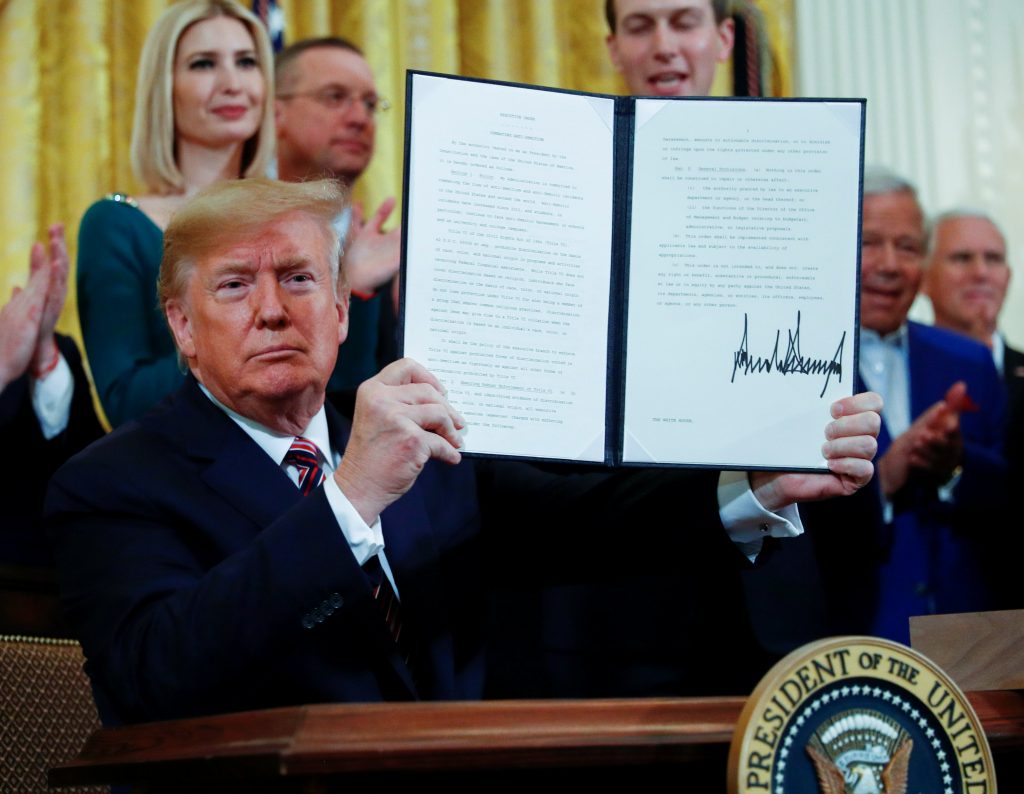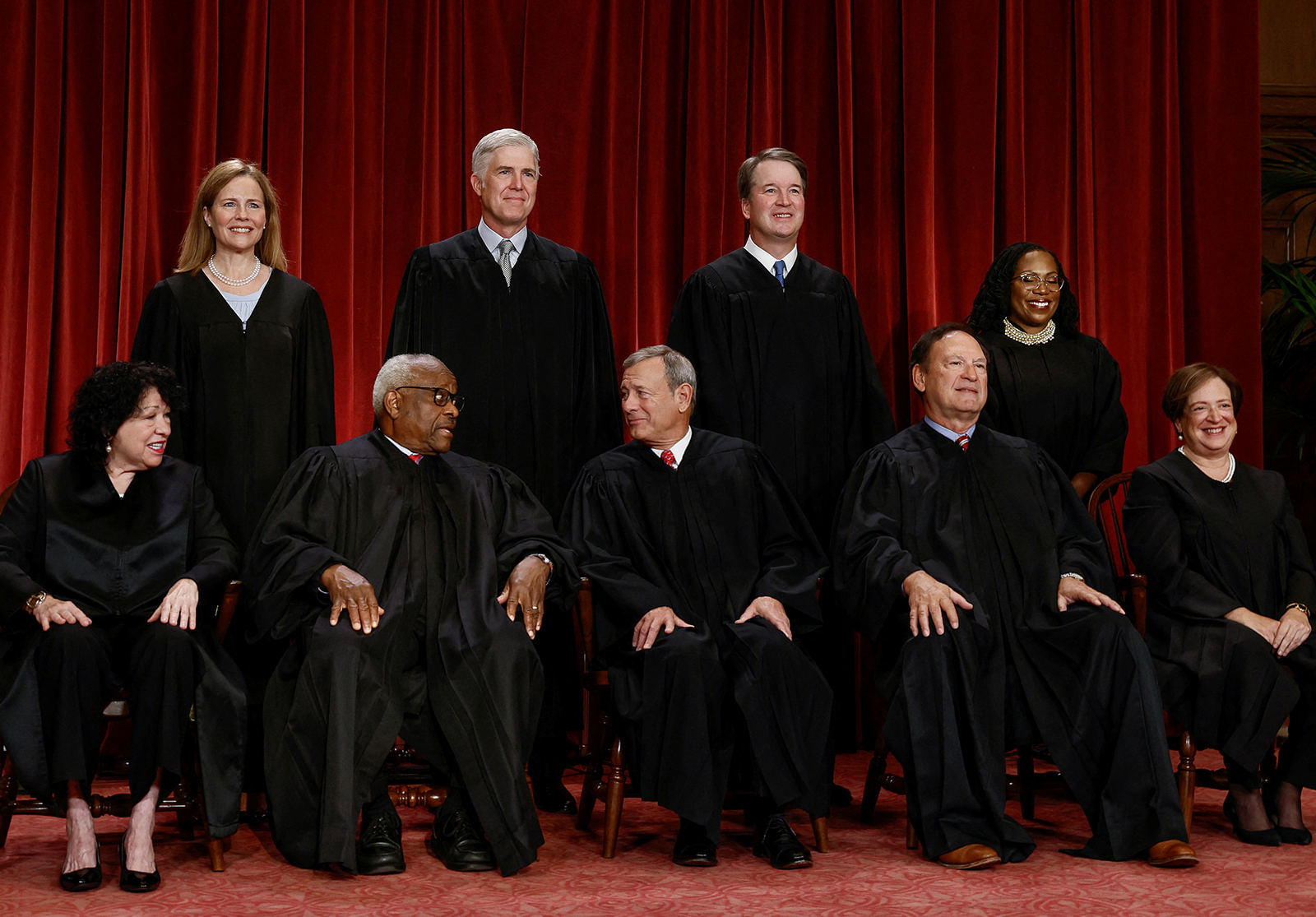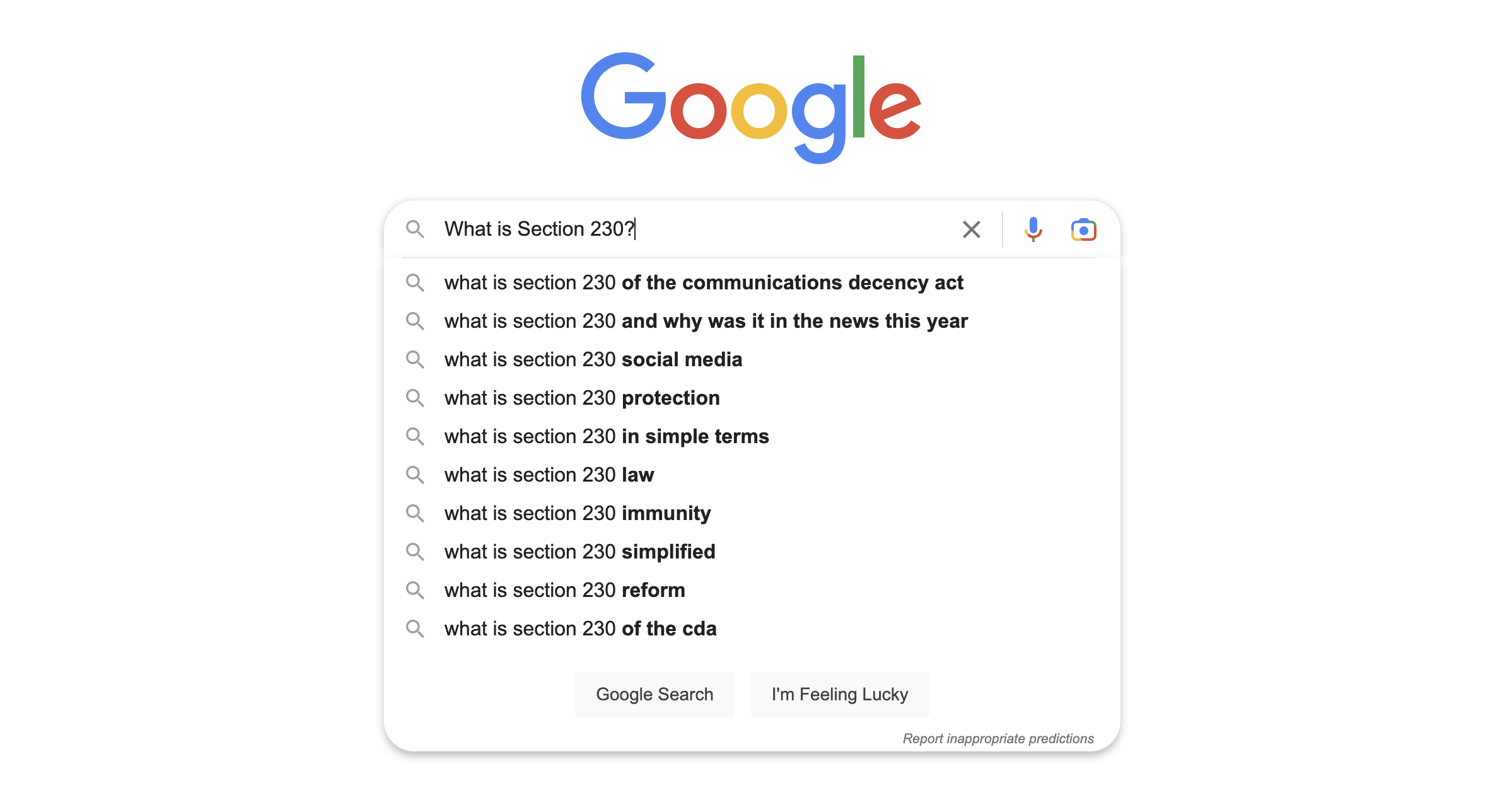On May 28th, President Donald Trump signed an executive order that aims to roll back legal protections for social media platforms. His order was immediately met with withering criticism from First Amendment experts.
The order directs the Federal Communications Commission (FCC) to rethink the scope of Section 230, a law that protects social media companies from lawsuits over the content published on their sites. Section 230 has come under attack by a number of critics recently, including the Department of Justice. They claim that the law allows social media platforms like Twitter and Facebook to skirt responsibility for harmful or misleading online content, and for discriminating against conservative writers.
In a pre-signing press conference, Trump said the move was to “defend free speech from one of the gravest dangers it has faced in American history.”
“A small handful of social media monopolies controls a vast portion of all public and private communications in the United States,” he claimed. “They’ve had unchecked power to censor, restrict, edit, shape, hide, alter, virtually any form of communication between private citizens and large public audiences.”
Trump’s decision to issue the executive order came just two days after Twitter fact-checked two of his tweets that claimed that mail-in ballots are fraudulent. The Twitter label attached to Trump’s tweets reads, “Get the facts about mail-in ballots,” and redirects users to news articles about voting by mail.
The proposed executive order also addresses one of Trump’s oft-repeated complaints, made without supporting evidence: that social media companies favor liberal voices over conservative ones. Shortly after the Twitter fact-checking incident, Trump tweeted out, “Republicans feel that Social Media Platforms totally silence conservatives [sic] voices. We will strongly regulate, or close them down, before we can ever allow this to happen. We saw what they attempted to do, and failed, in 2016. We can’t let a more sophisticated version of that …. happen again.”
The order will also create a council that will work with state attorney generals to look into complaints about political bias, and authorize federal regulators to determine whether social media platforms’ content-moderation policies are viewpoint neutral.
First Amendment advocates have been weighing in on the proposed order, with many criticizing the President for trying to censor speech that he doesn’t agree with.
“Fundamentally this dispute is about whether Twitter has the right to disagree with, criticize, and respond to the president,” Jameel Jaffer, executive director at the Knight First Amendment Institute at Columbia University, told The New York Times. “Obviously, it does. It is remarkable and truly chilling that the president and his advisers seem to believe otherwise.”
Noted First Amendment lawyer Floyd Abrams, told Reuters, “In terms of presidential efforts to limit critical commentary about themselves, I think one would have to go back to the Sedition Act of 1798 – which made it illegal to say false things about the president and certain other public officials – to find an attack supposedly rooted in law by a president on any entity which comments or prints comments about public issues and public people.”
New York Times Reuters Washington Post
Tags




